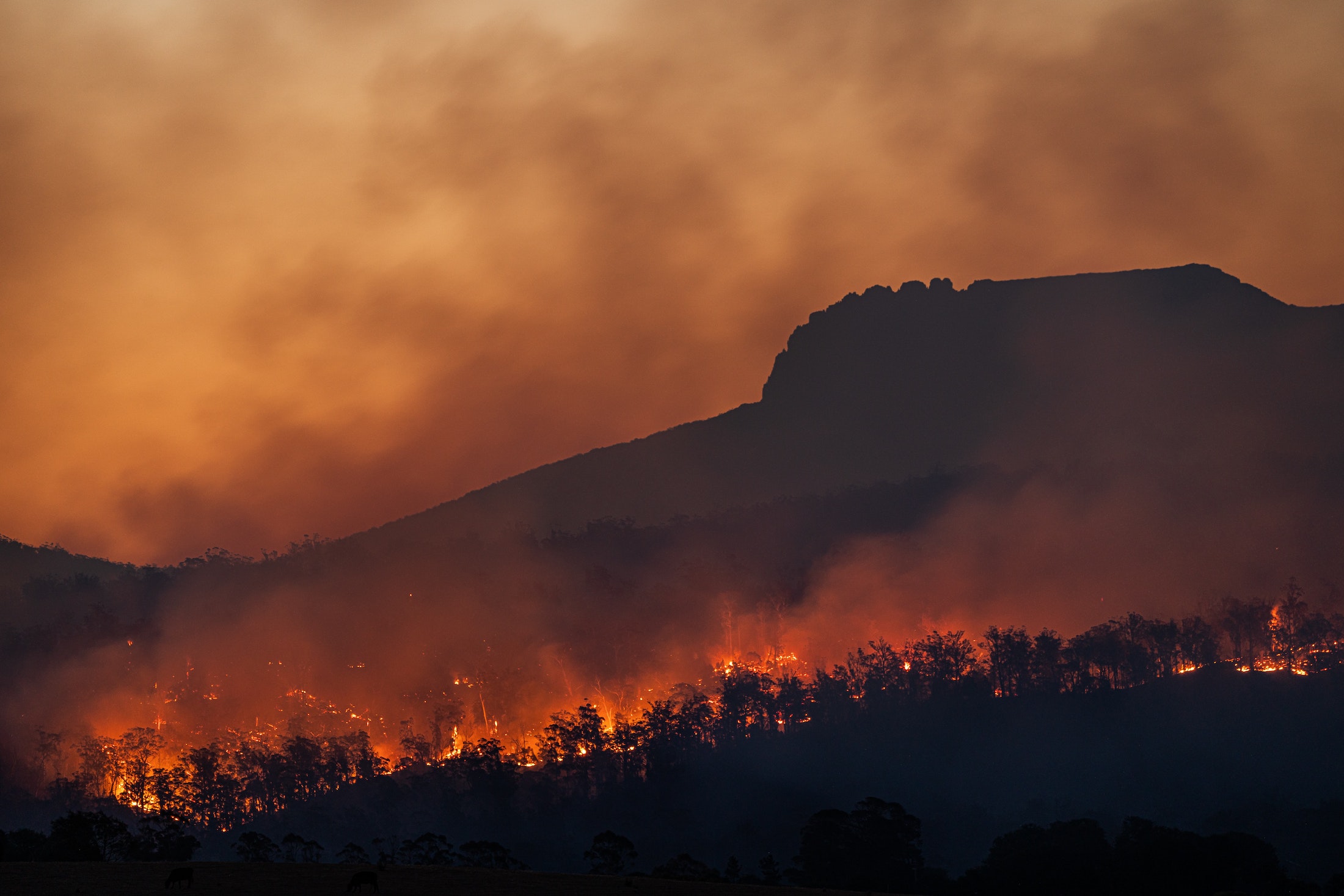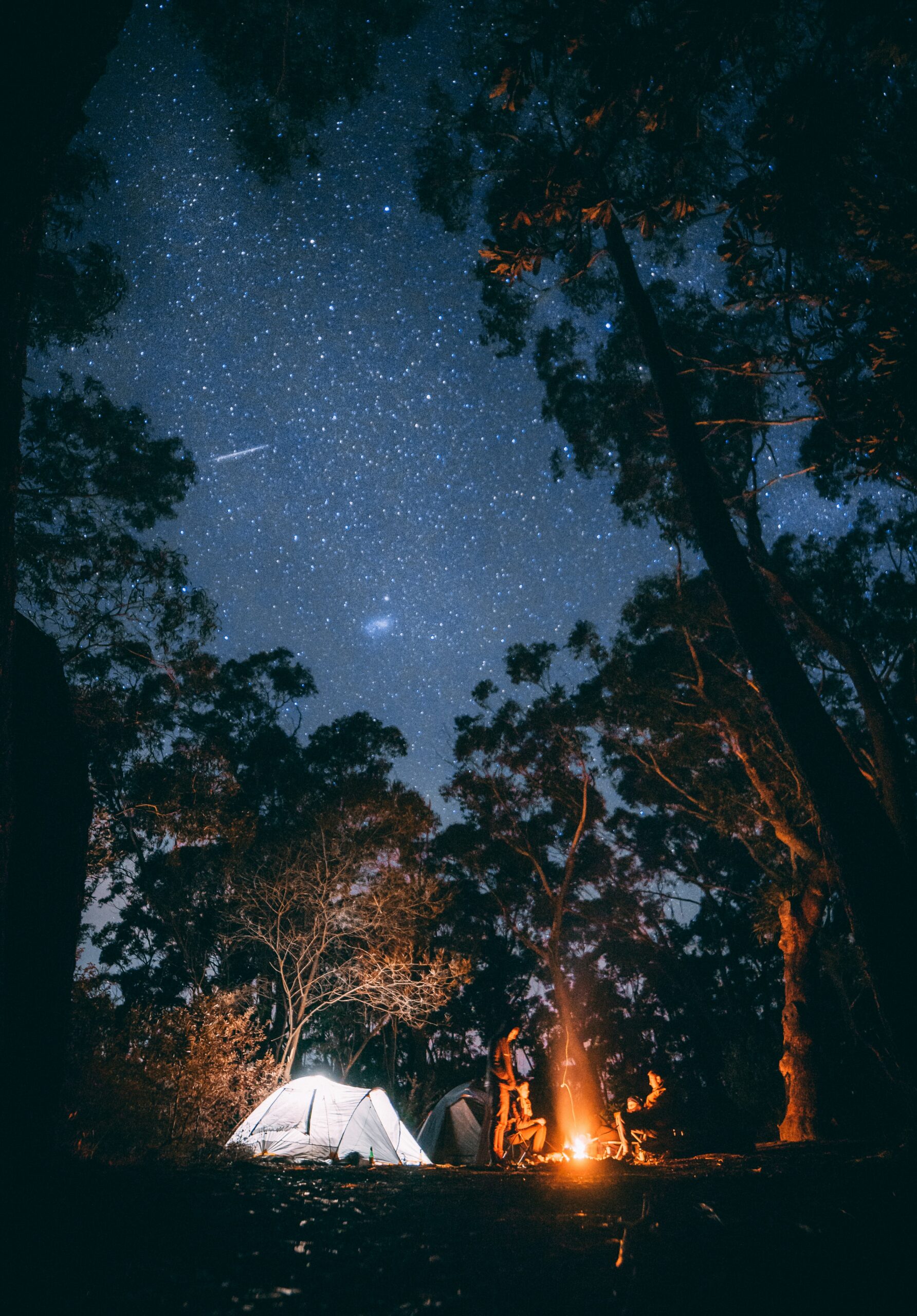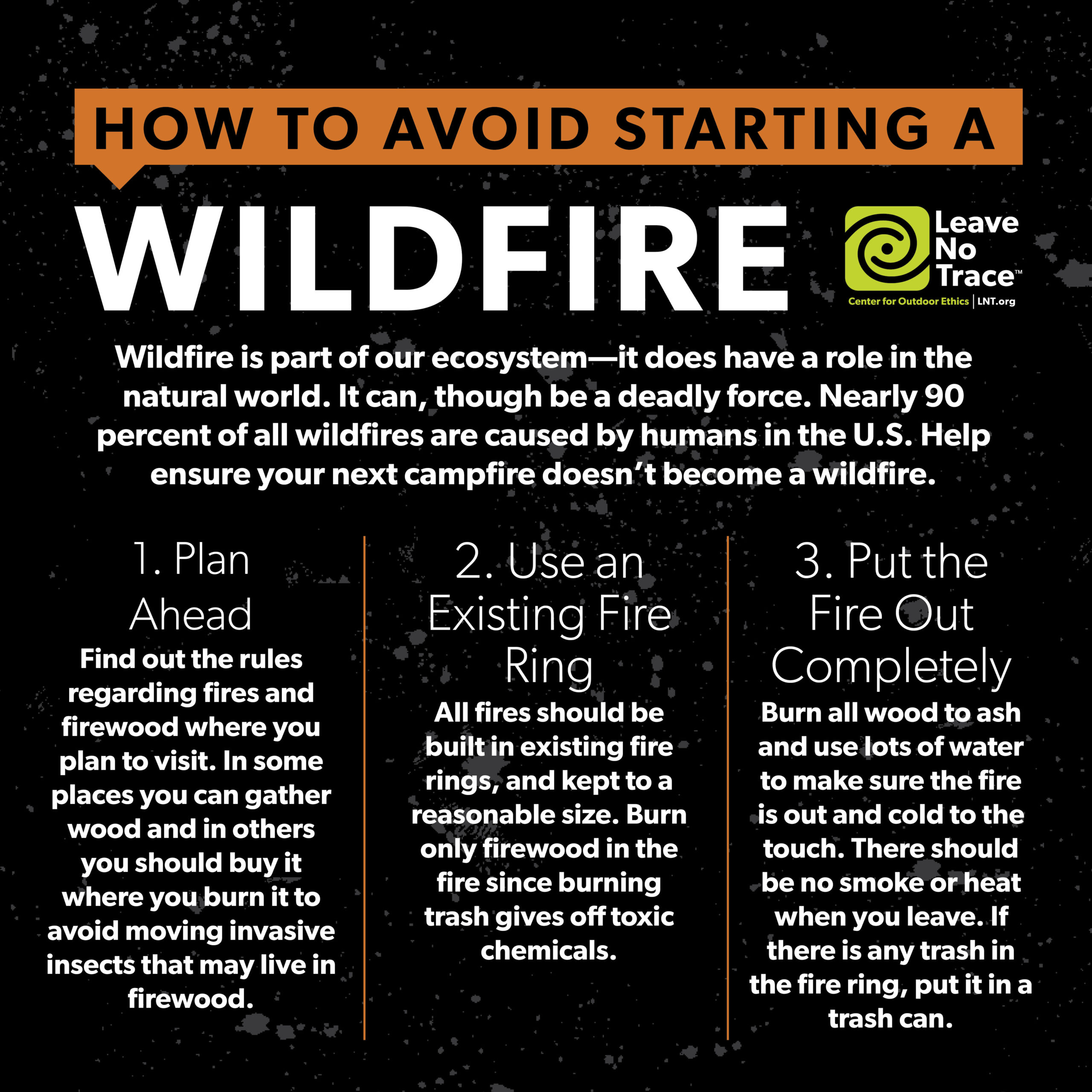Research & Education
How to Avoid Starting a Wildfire


Simply put, wildfire is part of the ecosystem. Fire plays an important role in shaping the natural world. However, wildfire can be a deadly force on the landscape. It can destroy wildlife habitat, forests, and peoples’ homes. Wildfires also create a significant human health concern due to the air pollution they cause. As the weather becomes warmer across most of the country, and wildland vegetation such as trees, shrubs, downed logs (known as fuels) begin to dry out, it is time to learn how you can minimize or eliminate the risks of wildfire. Download Leave No Trace’s Wildfire Social Toolkit here.

On average, nearly 90 percent of all wildfires are caused by humans annually in the U.S. According to the National Interagency Fire Center in Boise, Idaho, there were over 53,000 human-caused wildfires in the U.S. in 2020 alone. These fires torched a total of 5.9 million acres of land, an area larger than Rhode Island, Delaware, and Connecticut combined. The total cost of putting out wildfires in the U.S. in 2020 was $2.2 billion. While these numbers are staggering, the bigger take home is that the vast majority of these fires are preventable.
Wildfires can be started by people in many ways. Out of control campfires, lit cigarettes, or sparks from tools such as chainsaws or vehicle mufflers, are all common sources of human-caused wildfire. Even if people choose to have a responsible fire, research has shown that such fires can be easily driven by wind and can quickly get out of control. The effects of a changing climate have led to drier and warmer conditions, which compound the potential for catastrophic wildfires. There is no doubt that wildfires threaten peoples’ lives, property, and critical natural resources. However, this doesn’t mean that fires can’t safely and responsibly be part of your next outing.

If you plan to have a fire, here are some important recommendations to follow:
- Fire bans are often put in place in many areas across the country as we move into summer. Check regulations before any outing that may involve campfires, fire or fireworks. If you use cigarettes, fully extinguish them and dispose of them properly.
- To minimize the spread of invasive insects that can live in firewood, source your firewood locally by either gathering if allowed or purchasing near your campsite.
- Use a camp stove for cooking if one is available to you. Stoves can create fewer impacts than fire, and when used properly are less likely to start wildfires.
- If you have a campfire, use existing fire rings – rock or metal – to protect the ground from heat. Keep your fire small. Burn only firewood in the fire since burning trash gives off toxic chemicals that you don’t’ want to breathe.
- Burn all wood completely to ash, use lots of water to douse the fire, and be sure the fire is completely out and cold before you leave the area.

If you choose to have a campfire, do so in a responsible way that ensures you can minimize the impacts and eliminate the chances of wildfire.
Let’s protect and enjoy our natural world together
Get the latest in Leave No Trace eNews in your inbox so you can stay informed and involved.
